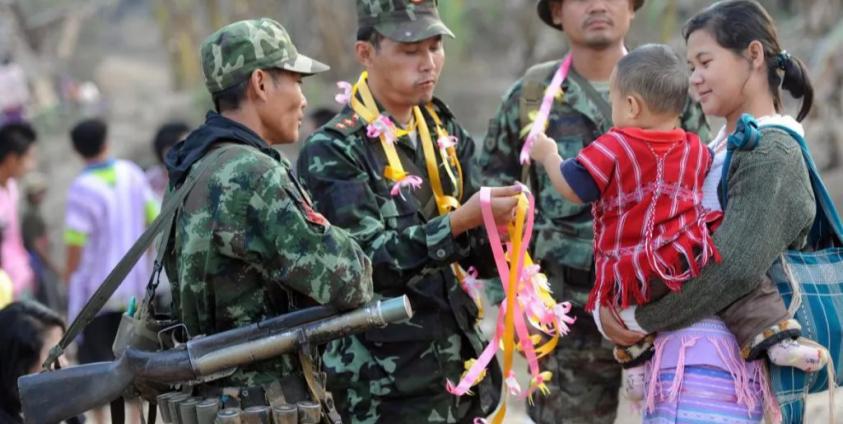The Karen National Union (KNU) has announced plans to establish administrative structures in towns where junta control has collapsed due to ongoing clashes sparked by the coup.
Since the coup, KNU has secured control over Kyaikdon, Sukali, Payathonzu (Three Pagodas Pass), and Hpapun in Karen State, although some junta troops remain deployed in these areas.
KNU's seven brigades have disabled or blocked junta bases in their respective operational zones, severely limiting the junta's operational capacity within KNU territories. The next step for KNU involves implementing administrative mechanisms in these areas, as stated by KNU spokesperson Padoh Saw Kale Say.
"In towns where the junta's authority has collapsed, we are focused on establishing systematic governance. This involves careful preparation of rules, policies, and procedures. We are proceeding systematically," he assured Than Lwin Times.
Challenges arose in June for the 6th Brigade in KNU's Dooplaya District in implementing administrative operations, hence it urged all junta employees to resign to facilitate the smooth transition to KNU administration and discouraged collaboration with the junta.
In KNU-controlled areas, the resistance joint forces led by the Karen National Liberation Army (KNLA), armed wing of KNU, continues daily battles against junta forces. Junta usually conducted airstrikes, shelling, and drone attacks on civilian areas during these clashes.
Padoh Saw Kale Say emphasized KNU's commitment to press for the withdrawal of junta troops stationed in garrisons across its controlled territories.
"In some areas, junta garrisons still remain. As we establish administrative mechanisms, we will work to ensure their departure," he declared.
As resistance against the coup intensifies, the junta has lost control of over 70 towns nationwide, along with numerous military bases and outposts, significantly weakening its manpower.







